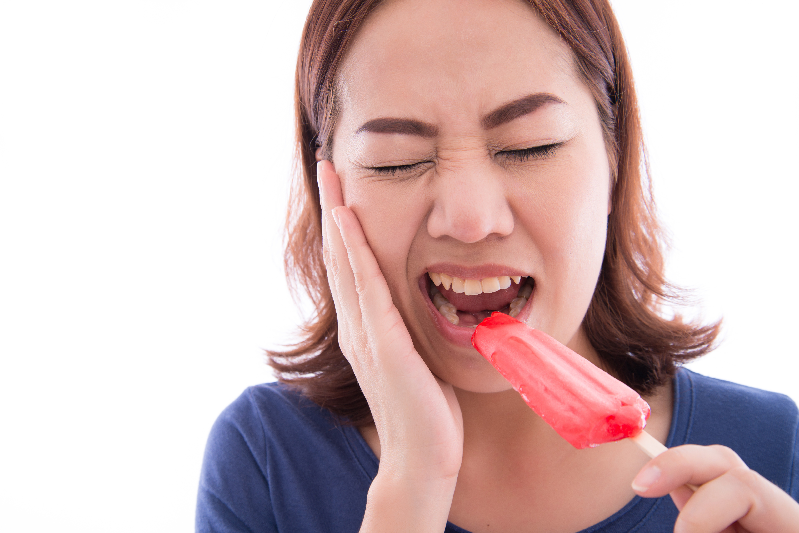

Do you avoid cold or hot foods and drinks because of your tooth sensitivity? The painful sting of sensitive teeth isn’t just uncomfortable — it’s also a sign that you may need to address some concerns regarding oral health.
According to a study published in the International Dental Journal, nearly 57% of adults between the ages of 20 to 50 report having sensitive teeth. This common dental problem can be the result of several factors.
Most Common Causes of Sensitive Teeth
Before treating your sensitive teeth, it’s important to determine the root cause of this dental issue. Some of the most common causes of tooth sensitivity include:
Acidic Food: Tooth enamel is one of the hardest substances in the human body, but it’s not immune to the erosive properties of an acidic diet. When the enamel is worn down, the pathways to the tooth’s nerves are exposed, causing sensitivity. Some acidic foods that can contribute to tooth pain include lemons, oranges, tomato sauce, and pickles.
Brushing Too Aggressively: Adding more pressure to your teeth while brushing isn’t a more effective way to remove plaque. In fact, it can actually wear down the tooth enamel and cause you to experience tooth sensitivity. To avoid this problem, we encourage patients to use a soft-bristled toothbrush and gentle circular motions to remove plaque without harming the enamel.
Bruxism: Grinding or clenching your teeth, also known as bruxism, can also wear down the tooth enamel. Although the teeth are designed to withstand daily wear and tear from biting and chewing, they’re not able to resist the damage that occurs from bruxism. After enough time, grinding and clenching will eventually wear down the enamel, making you susceptible to tooth sensitivity.
Cracked or Chipped Tooth: A cracked or chipped tooth can leave the tooth root exposed. Since this is where the blood vessels and nerves of the tooth are located, patients will typically experience sensitivity as soon as the tooth is chipped or cracked.
Excess Plaque: Poor oral hygiene is another common cause of tooth sensitivity. Without regular brushing and flossing, excess plaque will accumulate and cause tooth enamel to wear away. As the protective enamel continues to wear away, the teeth will become more and more sensitive.
Treating Sensitive Teeth
Fortunately, there are several ways you can alleviate tooth sensitivity. Treating your sensitive teeth can include one or a combination of these options:
- Toothpaste for sensitivity
- Changes in diet
- Fluoride treatment
- Bonded fillings or crowns
- Root canal therapy
What Treatment is Best for Me?
Depending on the severity of your tooth sensitivity, you may want to explore different treatment options. If your sensitivity persists, we strongly encourage you to come into our office to determine the cause of your sensitivity and to find the best solution for your particular case.